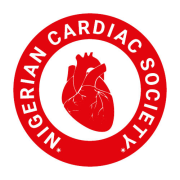

Author(s): Rohit S, Jagdish H, Chandrakant C, Sujit N and Rahul M
Introduction: Treatment of atherosclerosis and ischemic heart disease is a yet unresolved mystery. Reversal of atherosclerosis is studied by intra vascular ultrasound. Effect of atherosclerosis regression on myocardial perfusion is studied by SPECT myocardial perfusion (SPECT-MPI). Ayurvedic therapy in the form “ ischemia reversal programme” (IRP) was studied with SPECT-MPI to see its effect on myocardial perfusion.
Methods: The present open label study involved fourteen IHD patients who underwent IPR (21 IRP sittings) in Madhavbaug clinics, Maharashtra. The inclusion criteria was patients (aged between 40-70 years) with BMI >20 kg/m2 and positive for stress test induced ischemia. However, patients with recent myocardial infarction/known hypo or hyper thyroidism/chornic kidney disorder were excluded. SPECT-MPI was performed at enrolment and after 21 IRP sittings. Additionally, VO2 peak and time of ischemia after stress test were recorded.
Results: SPECT_MPI results showed significant difference in Summed Stress Score [SSS] (baseline vs. post 21 IRP sittings, 13.5+10.3 vs. 10.7+10.1; p=0.01) as well as Summed Difference Score [SDS] (baseline vs. post 21 IRP sittings, 8.9+6.2vs. 6.2+6.3; p=0.03) in IHD patients. Similarly an increase in VO2 peak levels (baseline vs. post 21 IRP sittings, 12.8+5.7, vs. 19.4+7.8 and 23.6+6.0, post 25-30 IRP sittings) and time of ischemia in seconds (baseline vs. post 21 IRP sittings, 370.7+201.1 vs. 597.8+201.9 and 702.0+ 138.0, 30 days follow up) was recorded. Significant improvement post IRP (30.2+3.6, baseline vs. 32.7+3.5, post IRP sittings) was observed according to SAQ scores. However, ejection fraction score was not significantly changed post IRP vs. baseline.
Conclusion and Interpretation: Statistically significant improvement in myocardial perfusion after IRP in IHD patients is observed, depicting positive role of IRP in IHD management.